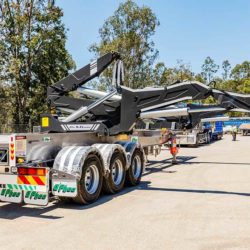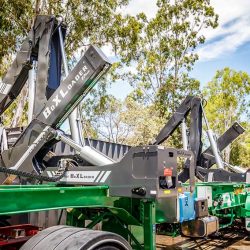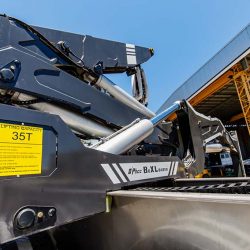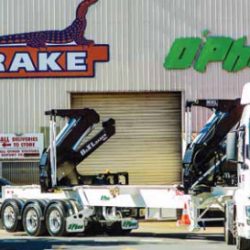Earlier this year, Kalmar, who is part of the Cargotec Group, released its vision for the sustainable future of the cargo handling. Their video depicts the possibilities of A to B handling, including the consumer-producer relationship in the year 2060.
Data driving the future of cargo handling industry
Data appears to be the driving force behind the way we look at world trade operations, in efforts to make it a more efficient, safe and sustainable industry.
So, what exactly does that look like?
- As cities begin to burst and regional centres expand, we will all live in interconnected smart cities that are part of a global network where consumer demand drives the cargo handling and logistics industry
- Terminals will be a hub of activity, acting as complete logistic ecosystems and global interchange points for our instant society
- All ports will see a massive overhaul, completely automating every step of the handling process. It will run on renewable energy with no carbon emissions
- Predictive maintenance, which directly monitors the condition and performance of service equipment, will run continuously to ensure each stage of the freight process runs smoothly, with minimal downtime
- Any new parts for service equipment can be 3D printed in an instant to get equipment back to working order in a matter of minutes or hours
- Big data will be used to the full benefit of global and local society
- Rather than letting “robots take over”, artificial intelligence will collaborate with human experience and knowledge to help us solve in-depth, complex problems
- People are more digitally connected than ever, with technology opening up new opportunities for collaboration, co-creation and new ways of thinking, which can positively impact the global quality of life
A day in the life…
What will a day in the life of a consumer in 2060 look like? Kalmar have depicted this as more personalised and efficient. For example, your favourite blend of coffee, which can be directly ordered from a local producer, will be moved rapidly around the world in smart containers, that through smart technologies, know their contents and destination, to arrive at its destination in an automated and efficient way.
Challenges facing freight
Australia wants to thrive in the global goods market, but there are a few things in the way of it becoming a leader. While global logistics is a deeply complex topic, these are the more common challenges the freight industry needs to address.
- Infrastructure: Congestion at terminals, ports and on our roads will continue to be a problem, costing Australian billions by 2030 and affecting on-time delivery, if smart infrastructure isn’t implemented. We talk more about this in our series: The future of Australian Transport Reform and Regulations
- Security: This is a growing concern amongst the logistics industry, with goods being passed through many hands. Unless everyone adopts appropriate procedure, security becomes an issue
The latest in container handling technology
O’Phee Trailers, part of The Drake Group, are leading the way in cargo handling with their O’Phee BoXLoader series of trailers. Their latest design, the Retract-X is a complete departure from the currently available retractable skel trailers, boasting the lightest frame in the Australian marketplace, while ensuring more accurate and efficient payloads.
If you’re ready to redefine your business operations with an O’Phee skel trailer that will transport you to the future, get in touch with The Drake Group today.



